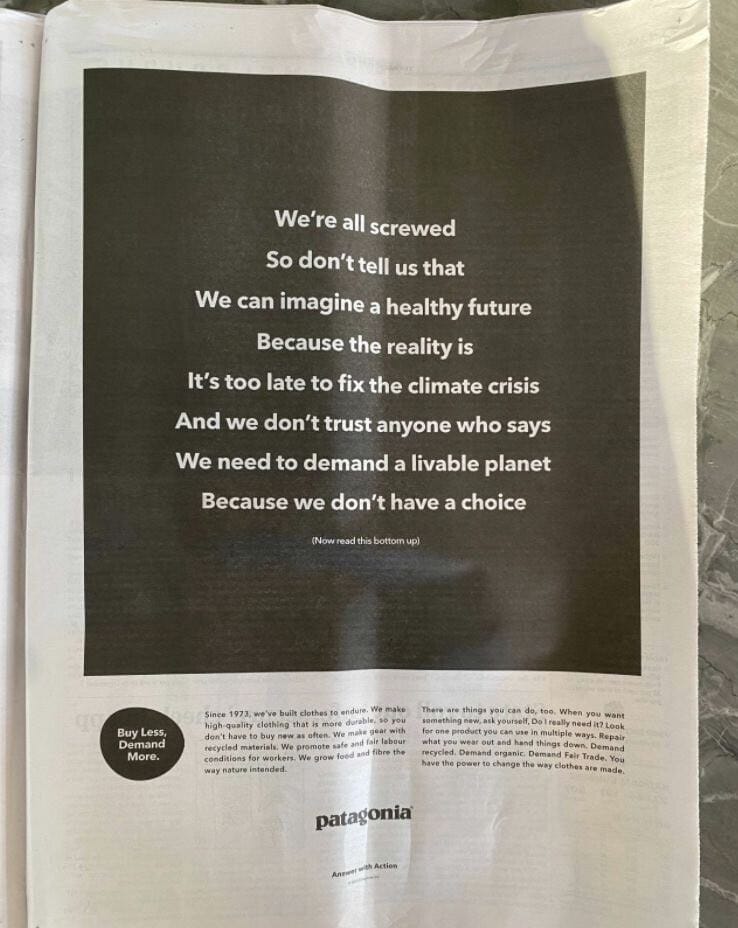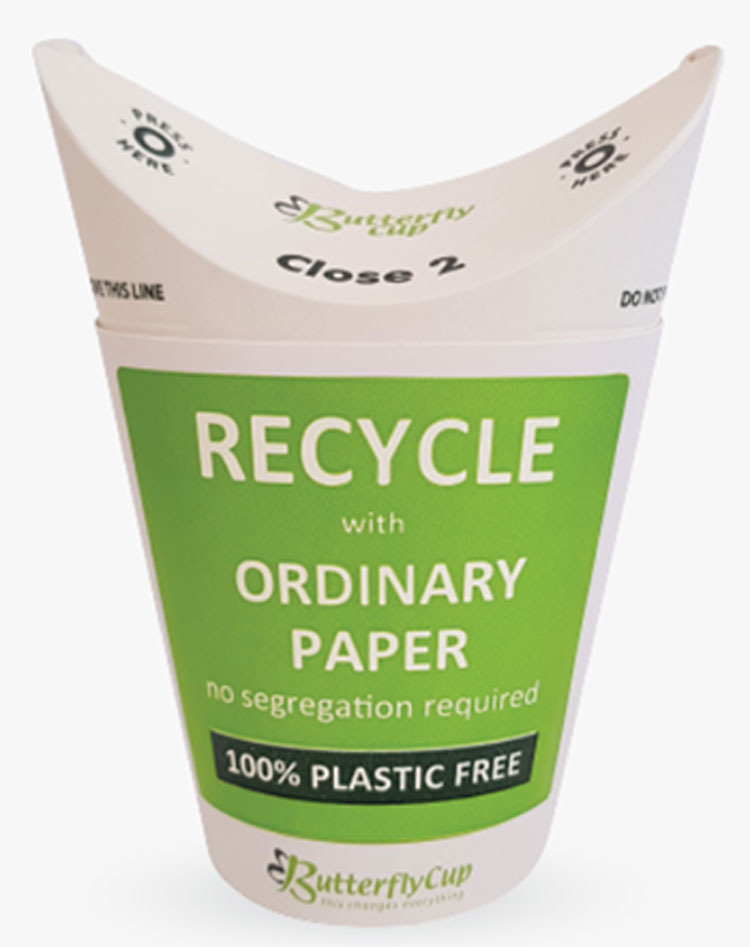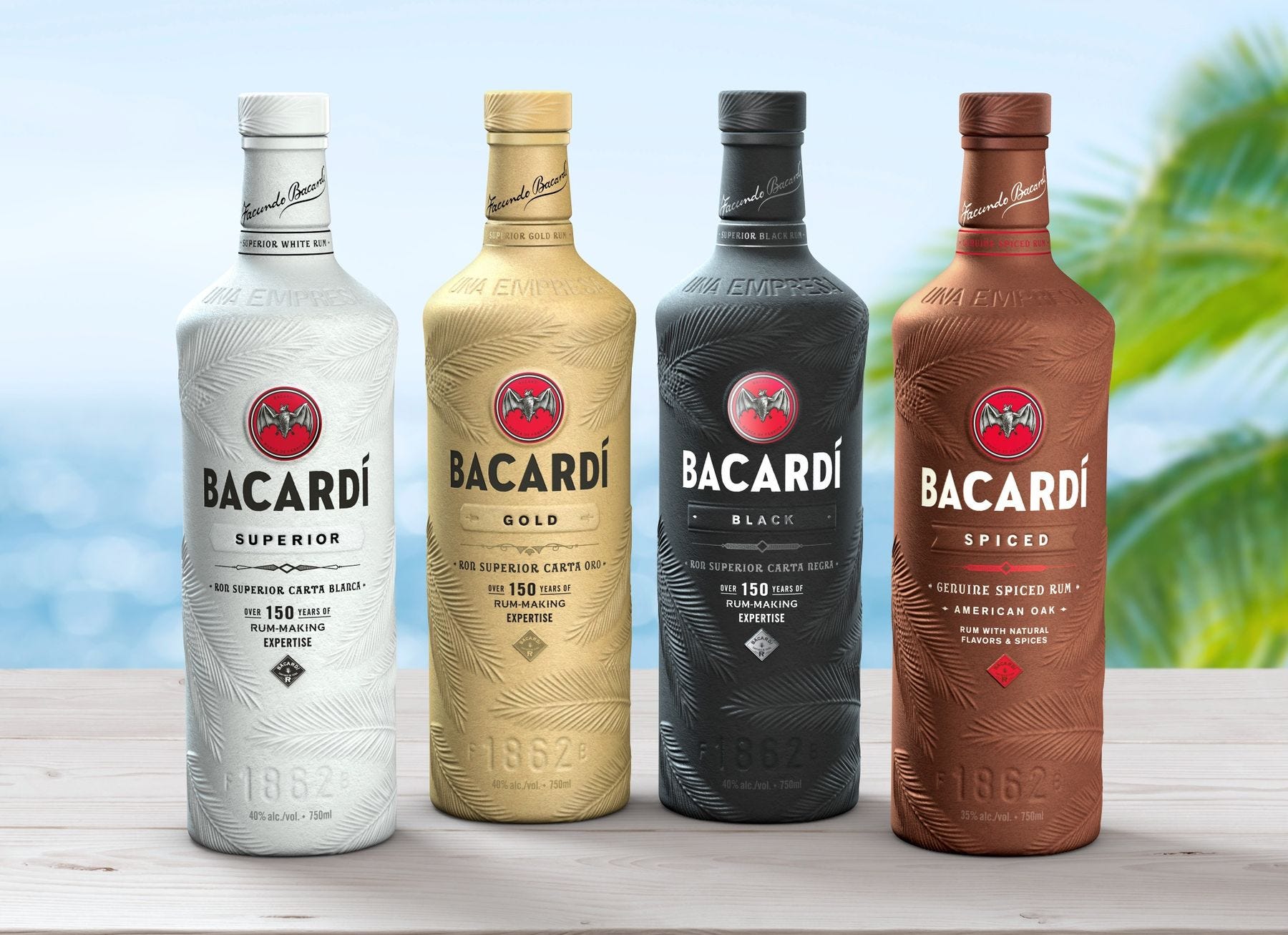
Patagonia’s memorable Black Friday/Cyber Monday campaigns continue with a poem to be read from the bottom up, currently running in newspapers such as the New York Times. The text reads:
We’re all screwed
So don’t tell us that
We can imagine a healthy future
Because the reality is
It’s too late to fix the climate crisis
And we don’t trust anyone who says
We need to demand a livable planet
Because we don’t have a choice
(Now read this bottom up)

A possible solution for the disposable cup problem? ButterflyCup is an all-in-one takeaway coffee cup with no lid and no plastic laminate lining. Additionally the inks used on the exterior of the cup are all plant-based. The cup can be disposed of in normal paper recycling or a home compost facility. Design Week has the story here
Barcelona Mayor Ada Colau writes in The Guardian about plans to “transform the entire central grid of the city into a greener, pedestrian-friendly and almost car-free area”. “Our aim is to become the major scientific and cultural capital of the Mediterranean, driving Europe’s transition towards a green and circular economy”. Story here
“We design at our best in times of urgency and crisis, embracing uncertainty as space for creativity and imagination,” says the RSA, trailing an online event on “design’s response to the crises of 2020”. The event brings “four 2020 crisis responders together to tell their stories of triumph and failure. From the thinkers creating Covid19 response models for health and care communities in the UK, to the designers innovating towards carbon neutral cities in Zagreb. From the innovators improving bushfire community resilience in Australia, to the tech entrepreneurs reducing polarisation and conflict through social media in the US and Kenya.” Watch from 1pm - 2pm on December 10. Details here

“Has Bacardi Solved the World’s Plastic Problem?” Asks Bloomberg Green. “In 2023, Bacardi will start using bottles (above) made with a remarkable new bioplastic called Nodax PHA. Unlike traditional bottles, the new ones will biodegrade in compost piles, special landfills and even the ocean. It's an impressive feat of innovation.” Unfortunately, the story points out, “if there isn’t appropriate infrastructure to manage those new bottles, they could just become a new waste stream.” The solution? “If brands like Bacardi want to reduce such waste, they should help build out the facilities needed to manage it.” Quite. Read the full story here

